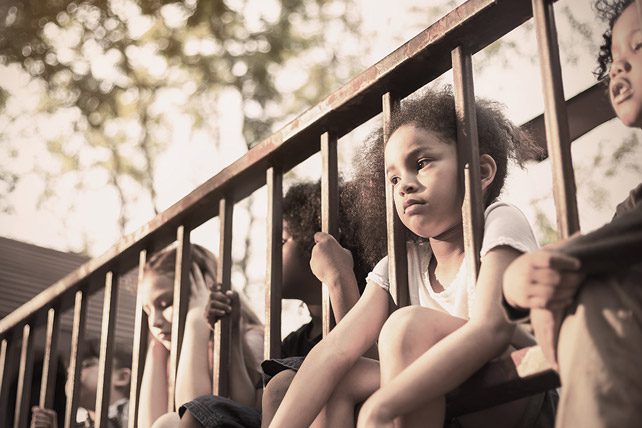As Christians, we believe in caring for the orphan and the widow. And in America, many Christians are eager to send money and even visit orphanages in faraway countries to help orphans—it feels like the best way to help. But what if the reality of these children’s situation is more complex?
What if it turns out these children aren’t actually “orphans” after all?
My Story From the Inside
I grew up in Sierra Leone, poor, but loved. My parents were rural farmers. But when the civil war broke out, rebels ultimately captured my family. At only eight years old, my worst nightmare became my reality: They shot my father right in front of me, and in the chaos that followed, I was separated from my mother and brother.
I eventually found my way to the city and sheltered with other boys who were sleeping on the street. Together, we found odd jobs and tried to survive. Then one day, a man recognized me and took me to my uncle’s home.
There, I was welcomed, but my uncle was often away—looking for missing family or trying to find work. When he was gone, I returned to the streets. I lived on and off there for almost a year. But one night, four adults approached me and said they were there to rescue me. With my uncle’s reluctant blessing, they brought me to an orphanage.
At the orphanage, I received food, shelter, and an education. And for the next 10 years, I was clothed and cared for, but I was disconnected from the community and missed my family dearly. I lived within this tension—between gratefulness for what I had and a deep longing for what I didn’t, my family.
When my uncle came to visit, he was told I wasn’t allowed to see him. At the time, it was thought a clean separation from family was best for us kids. But I’d wait near the fence line for my uncle to visit so I could secretly talk to him, never failing to ask about news of my mother. Eventually, I learned she was alive, and I asked if I could see her.
Our much-delayed meeting was full of tears and joy, laughter and grief. She told me how she’d come to the orphanage before. But, not speaking the language of the city I was in, she was unable to explain well her connection to me, or how I even got there—because she didn’t really know. The guards told her I was well taken care of and that she should continue praying for me. After her third unsuccessful and heartbreaking attempt to visit, she simply stopped coming.
The tragedy on top of the trauma is that everyone in charge knew I had a family who wanted me.
Did You Know?
Poverty and lack of resources, not a lack of family, drive most children into residential care facilities, like orphanages and children’s homes. My circumstances were not unique. Many of my peers were similarly separated from or reluctantly surrendered by their families. It’s easy for an orphanage in a poor country to become an unfortunate but viable alternative for families who are struggling.
Outside of Sierra Leone, my story isn’t uncommon either. Four out of five children worldwide who live in residential settings like I did have at least one living parent. The remaining children typically have extended family members who are willing to take them in, but those relatives might not have the ability or capacity to do that on their own.

